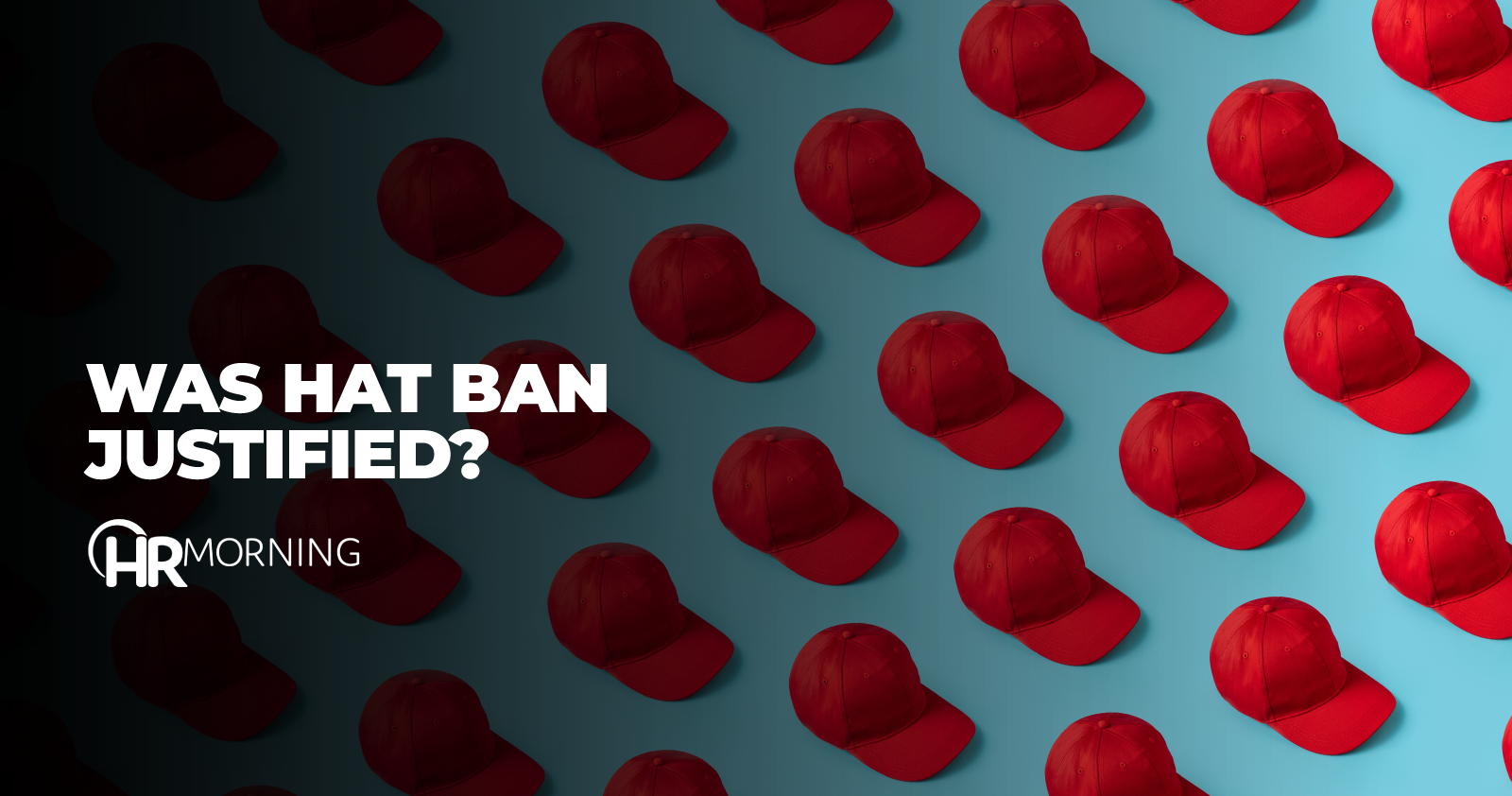A teacher who was prohibited from wearing a MAGA hat at training sessions will proceed with a First Amendment lawsuit following a ruling by a federal appeals tribunal.
The case highlights a basic but critical distinction between public and private employment – and employee rights to freedom of expression that attach to each.
Eric Dodge enjoyed a long tenure of employment as a public school teacher for the Evergreen School District # 114 in Vancouver, Washington.
Before the start of the 2019-20 school year – and in preparation for a move to a new school in the district — Dodge attended two days of teacher training. He brought a MAGA hat with him to the training sessions, which addressed the topics of cultural sensitivity and racial bias.
Dodge wore the hat up to the front doors and took it off when he entered the building where the training was held. He did not wear his hat during the training, which was attended by about 60 people. Instead, he put it either on a table in front of him or on top of his backpack.
MAGA hat leads to issues
The professor who led the training told Dodge’s principal, Caroline Garrett, that the hat caused her to feel “intimidated and traumatized.”
After talking to a human resources officer, Garrett told Dodge at the end of the first day of training that he needed to use “better judgment.”
When Dodge returned with his hat for the second day of training, Garrett stepped up her response – significantly.
The decision in the case says she called Dodge a racist and a homophobe. She also reportedly told him that if she needed to talk to him about the hat one more time, he would need to have his union representative present.
Dodge filed an internal complaint of harassment, intimidation and bullying against Garrett, but the district determined she did not violate policy.
Dodge then sued Garrett, the human resources officer, and the school district, accusing them of violating the First Amendment by retaliating against him for engaging in protected political speech.
Lower court boots suit
In a federal district court, things did not go as he had hoped. The district court ruled that the individual defendants were entitled to qualified immunity, and it further found that the district was not liable. Dodge then filed an appeal.
The U.S. Court of Appeals for the Ninth Circuit breathed new life into his suit.
The court explained that to win, Dodge had to show:
- He engaged in protected speech
- The defendants took an adverse employment action against him, and
- His speech was a substantial or motivating factor for the adverse action.
If he did that, the defendants would have to show that they had a legitimate administrative interest in suppressing the speech that outweighed Dodge’s First Amendment rights.
The court said the claim against the HR officer could not proceed because she did not take any adverse action against Dodge.
Dodge engaged in protected speech when he brought the hat to the training, the court said.
And Garrett may have violated his First Amendment rights, it ruled. It was clear that her actions were motivated by the hat. Also, she did not show she had a strong administrative interest in banning the hat. She said others felt “intimidated” and “angry,” among other things, but in fact there was no evidence that the hat interfered with the training sessions. Her alleged interest in preventing disruption did not outweigh Dodge’s First Amendment rights, it said.
Moreover, the constitutional right that Garrett allegedly violated was clearly established at the time of the alleged violation. For all these reasons, Dodge’s First Amendment claim against her should not have been dismissed, the appeals court said.
BLM poster was allowed
Garrett was not enforcing a generally applicable policy that banned all political expression, the court pointed out. Instead, she openly admitted that she allowed other political symbols and speech at school, including a Black Lives Matter poster that was in the school library. She also had a Bernie Sanders bumper sticker on her car, it added.
Finally, the appeals court upheld the lower court’s ruling for the district, saying the district did not ratify or approve of Garrett’s behavior.
Thus, the lower court’s decision was partially reversed.
First Amendment protections are enjoyed by public-sector employees, such as the public school teacher who brought this suit.
Different rules for private employees
Private employers have much more leeway to restrict employee speech, but that freedom is not unbridled. Rather, employee speech that is sufficiently connected to the terms and conditions of employment is protected by the National Labor Relations Act. Additionally, speech that is substantially disruptive is subject to regulation.
Dodge v. Evergreen School Dist. #114, No. 21-35400 (9th Cir. 12/29/22).


